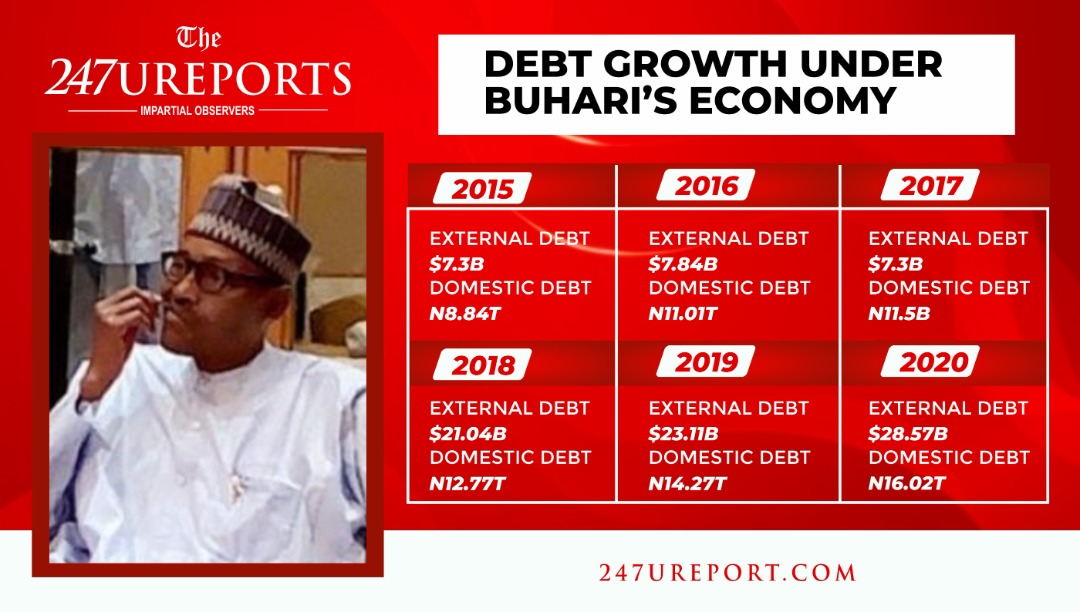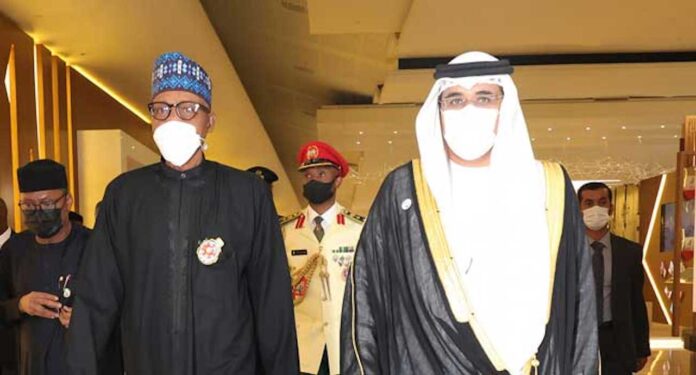The return of the President of Nigeria, Muhammadu Buhari from Dubai where had attended the Dubai Expo 2020 with ten [10] of his cabinet members may have been greeted with open arms by Nigerians who may not be able untangle the correlation of the trip and the growing economic hardship in the nation across geopolitical regions.
The President had gone for a four [4] day trip to Dubai to join over 190 other countries to forge true and meaningful partnerships. The Expo 2020, according to President Buhari’s media aide, was aimed at creating an environment for Nigeria to highlight significant strides in the economy in the last six [6] years.
The President arrived on Thursday December 2 and Sunday December 5, 2021. His entourage comprised of the Foreign Affairs Minister, Finance Minister, Industry, Trade & Investment Minister, Budget & National Planning Minister, National Security Advisor and four [4] others. Each of the entities accompanying the President is estimated to have budgeted N35million to cover the aides, feeding, transportation and accommodation. For the total of ten [10] cabinet members, it totaled N350million – of which, a source disclosed to 247ureports.com that the President’s personal travel expenses is pegged at a minimum sum of N150million. This puts the total estimated cost at N450million at minimum.
Nigeria expended the sum of N450million in return for a day to day activity that comprised of:
Thursday December 2: Arrival date and greetings with dignitaries
Friday December 3: Parley with leaders of Dubai, military heads, traditional and religious leaders.
Saturday December 4: Participated in a trade and investment forum
Sunday December 5: Returned to Nigeria.
A source termed the trip a Classic wastage.
Interestingly, the wastage comes amidst a growing debt profile that has never been witnessed in the history of Nigeria – from below $8billion external debt when Buhari took over the realms of power as the President of Nigeria in 2015 to more than $28billion in less than six [6] years in 2020.
See Table below.

In 2020, 97% of Nigeria’s total revenue N3.42trillion was spent repaying debt.
In 2016, the country spent about 24 per cent of its budget repaying debts. Of the N6.6 trillion budgeted for 2016, the government earmarked N1.5 trillion for debt financing.
The sum of N1.6 trillion was proposed for servicing debts out of the total (N7.3 trillion) budgeted for 2017.
In 2018, the figure rose as N2.2 trillion or 24.17 per cent was pegged for debt servicing in the N9.1 trillion budget.
In 2019, the government proposed to spend 24 per cent (N2.14 trillion) of the N8.9 trillion expenditure on debt service.
In mid-September, Mr Buhari sought the approval of the Senate to borrow $4 billion (4,054,476,863) and €710 million loan from bilateral and multilateral organisations to fund the deficit in the 2021 budget.
The president said the loan request is an addendum to the 2018-2020 borrowing plan and that the new borrowing is to meet “emerging needs” for some “critical projects.”
In July, the National Assembly had approved Mr Buhari’s request to borrow $8.3 billion and €490 million loans contained in the initial 2018-2020 borrowing plan.







